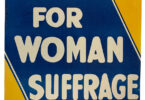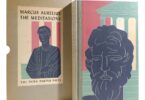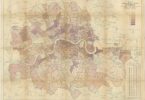
Book Collecting Decides What Goes Down In History
After his father died in 1757, Thomas Jefferson inherited the library of his father’s Shadwell Plantation. When that plantation house burned down in 1770, Jefferson mourned the loss of the books most of all. When he built his historic new home, Monticello, Jefferson amassed an even more impressive collection of nearly 10,000 books. After the British burned the Congressional Library in Washington during the War of 1812, Jefferson sold over 6,000 volumes from his collection to the Government, re-establishing the Library of Congress.
What Jefferson had chosen to collect and care for over the years were the books the Congress of the United States would use as a reference while establishing the laws of the newly founded country. Today, the Library of Congress is the largest library in the World.
Collecting Books Aids in Preservation
By buying and caring for books you love, you are maintaining them for future generations of collectors, buyers, and bibliophiles. Condition is vital in the trade of books, and a lovingly handled collection ensures that the texts will be available for the next crop of bibliophiles.
Books, by nature, are made up of materials that deteriorate – paper, leather, glue. Left alone, the ink and ideas on the pages quickly fade into history. But the ideas of the past represent human truths and concrete history that are important to save. Without books, what would we know about the Roman Empire, religion, The Renaissance, or the World Wars?
Collecting items we agree with establishes and emphasizes our views, while books we don’t agree with can serve as a warning for the future.
Book Collecting Can Give Voice to a Growing Diversity of Writers and Ideas
Along the same lines, book collecting makes a work important and saves it for future generations. Collecting a genre or author that is not popular today is a great way to get into book collecting on a budget. It also creates an interesting discussion piece and a way to highlight your personality and interests. There is always a chance that a niche will come into fashion, making your collection grow in value.
Luckily the interest has extended to a plethora of writers that don’t fall into the white straight male category generally championed in book collecting by Hemingway, Faulkner, Steinbeck, Blake, Dickens, and Joyce.
More diverse collections will be the rule in the coming years rather than the exception. Black women sci-fi authors, LGBTQ+ young adult and graphic novels, and small press poetry collections by indigenous authors will be the items sought after and treasured by a growing pool of interested and exciting bibliophiles.
Book Collecting Adds Value to Books
Book value is driven by demand. Just because a book is old or rare does not make it valuable. When a hidden gem is brought to light, that demand is driven up. The Great Gatsby is valuable because a bunch of people decided it was valuable. The same value can be given to Home to Harlem by Claude McKay or Orlando by Virginia Woolf.
Something that can immediately drive up the price of a book is controversy. Once a book gets ‘banned’ or ‘canceled,’ there is generally a run to snatch up the remaining copies the publisher has put ‘out of print.’ Just because it’s ‘banned’ doesn’t mean it’s ‘illegal’ – you’re not going to get pulled over and arrested for your 1st edition copy of Margaret Atwood’s The Handmaid’s Tale. The list of banned books in the U.S. is long, which can keep you collecting for a while. And while there are the sexy pulpy paperbacks of the 1950s, banned book lists still include classics such as A Farewell to Arms, Of Mice and Men, and The Adventures of Huckleberry Finn.
Book Collecting Makes you Smarter and More Self-Aware
The more books you have, the smarter you are – period. Surrounding yourself with books, exploring your interests, and learning from other collectors and booksellers is a way to ensure the cultivation of your mind and your living space. You will encourage the growth of your spirit and add to the enlightenment of others around you.
A study published in Social Science Research showed a direct correlation between the number of books in a home and proficiency in literacy, numeracy (using mathematical concepts in everyday life), and information communication technology.
But what if you have so many books there is no way you can read them all? That is perfectly fine. If you visit the Biltmore Estate in Biblio’s hometown of Asheville, you can see many of the 22,000 volumes that George Vanderbilt collected. Vanderbilt’s diary shows that he read nearly a hundred books a year, logging 3,159 books by his death in 1914. Still, that is a small fraction of the books he owned.
Renowned author Umberto Eco left behind a collection of more than 30,000 books in his personal library. If Eco read a book a day, he wouldn’t have been able to consume that many titles in his 84 years on earth.
But surrounding yourself with unread volumes is inspiring – it can provoke your curiosity and fill you with a never-ending sense of possibility. If you read a fraction of the titles, or simply love the look and feel of the texts, the hobby still enlightens.
The bottom line is that book collecting matters. It saves, preserves, and gives meaning to the words and ideas within the books. The more people interested in an item, the higher the value. The more something is collected, the better preserved those ideas are for future generations. Managing and maintaining the condition of your books may seem a small drop in the bucket, but it adds to the importance of book collecting and the integrity of the trade.
So start your collection, and take good care of it. You can start with our book collecting guide.
Amy C. Manikowski is a writer living in Asheville, NC.







Beautifully written, beautifully stated Amy!
Thank you!
Umberto Eco collected many of his books to use as a reference library, rather than to ‘read’ them. Those of us who do research on an amateur basis but don’t have access to university libraries or other major libraries sometimes have no choice if we want to do things properly.